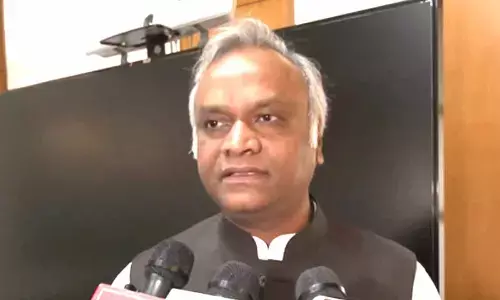Financial Literacy & Why it is important?

Representational Image
In the previous article related to financial literacy, I informed you that financial literacy is your relationship with the money you earn and it helps you in making effective decisions with the financial resources.
In the previous article related to financial literacy, I informed you that financial literacy is your relationship with the money you earn and it helps you in making effective decisions with the financial resources. Taking ahead the same, this time I would like to inform you that financial literacy is a confluence of your knowledge of finance, credit and debt that is necessary to make a responsible decision in terms of money.
These responsible decisions related to financial tools are integral to our everyday lives. So, financial literacy includes your understanding of the way accounts works, the use of credit cards and the ways to avoid debt. The absence of the same, have a material impact on families as management of daily, monthly and yearly finances, which includes budgeting the daily and monthly expenses, education funds and a balanced income for retirement. However, a strong foundation of financial skills will help you to achieve various life goals like education and retirement.
Why financial literacy is important?
Financial literacy is important for you because it will equip you with the knowledge and skill to manage your money effectively. The absence of the same will lack a strong foundation in terms of your actions and decisions concerning savings and investments. However, financial literacy will help you in understanding financial concepts in a better way and enable you to manage your finances efficiently. It will also help you in effective money management, financial decisions and achieving financial stability.
At the same time, financial literacy will provide in-depth knowledge of financial education and various strategies that are crucial for financial growth and success. This will enable you to be debt-free by adopting the best debt strategies. Four components needed to understand financial literacy better are budgeting, debt, saving and investment. Know them:
Budgeting: It is the most important skill that a person should have as it helps in planning and managing money. It helps you in having an eye on your spending habits and making optimum utilisation of money and create an actionable financial plan, which will help in tracking your expenses, segregating the unnecessary expenditure and spend money wisely. This is how you can save more. The thumb rule for budgeting is that income has to be greater than the expenses, which helps in planning for short-term, medium-term and long-term expenses.
Debt: It is just borrowing and spending money that is not yours. Debt includes various aspects of borrowing like loans taken from banks and the use of credit cards among others. But every debt is not a negative debt and for this purpose, you will have to understand the difference between bad debt and good debt. This differentiation is essential as everyone is not so rich that they can pay tuition fees for education or buy a house or a car, so taking a loan or borrowing is the only way out. Good debt means borrowing money for things that are necessary for making a living, which include aspects like paying education expenses or buying a home or a car. However, bad debt includes borrowing to meet unnecessary expenses like the use of credit cards to fulfil your desires. So, you as an individual should always aim to avoid bad debt as much as possible. This is the basics of debt management and being able to differentiate between good debt, which is necessary, and bad debt, which is unnecessary expenses, will help you in being away from getting in the trap of huge debts.
Saving: Saving means financial wellness along with securing the present and unseen future. Proper financial planning will help you in building wealth in long term. Having a tab on one's spending habits will allow you to save money and healthy/strong habits of saving will help you to achieve several things including achieving financial goals, attaining financial discipline and creating an emergency fund among others.
Investing: Investing means the ability to divert your money to some financial instrument instead of holding it idle in your bank account. Investing will help you in generating and growing wealth so that you can enjoy a secure and happy future. By investing, you can also meet your financial goals as well as allocating certain funds towards retirement. Few widely used investment options include debt instruments, equities, real estate, mutual funds and gold.
Conclusion
A strong understanding of the financial principles can help people understand and negotiate the financial landscape while managing the financial risks and avoid financial pitfalls. Financial literacy will help you in building wealth, achieving goals, protecting oneself in the case of emergencies, securing the family's future and make plans related to retirement, which means you will lead a life free from stress.








